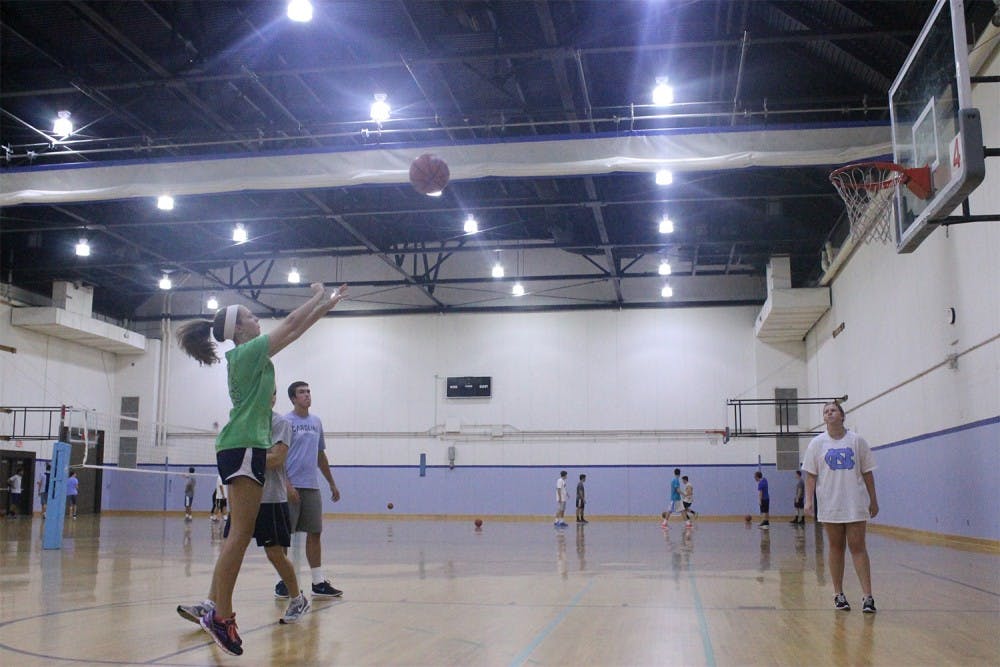“I actually consider the LFIT class as my primary trigger,” Daly said. “There were a myriad of factors. All of those factors came to a pinnacle when they asked me to record my calories for a week.”
The nutrition lab has students keep track of what they eat and their exercise for a week on the app, MyFitnessPal. At the end of the unit, students print out their results and turn it into their teaching assistant.
“The lab activity is never meant to be a calorie counter,” said Becca Battaglini, director of the Lifetime Fitness and Physical Activity programs. “The goal behind it is to kind of give them the bigger picture of their overall nutrition.”
But Daly, who graduated in 2013, felt the LFIT activity wasn’t designed in a healthy manner.
“For me, it became a game — it became how low can I get this deficit, and that really became unhealthy,” Daly said. “I never thought I had an eating disorder. I didn’t understand truly what an eating disorder was.”
‘It focuses on numbers’
Embody Carolina, a subcommittee of the Campus Y that trains friends of those dealing with eating disorders, has begun working with the Lifetime Fitness and Physical Activity programs by changing the way the course talks about and teaches nutrition.
“The main problem that we have with it is that it really focuses on numbers,” said Sarah Leck, Embody Carolina co-chairwoman. “It’s not about choosing foods that are good for you or eating food when you’re hungry or having a good relationship with food.”



